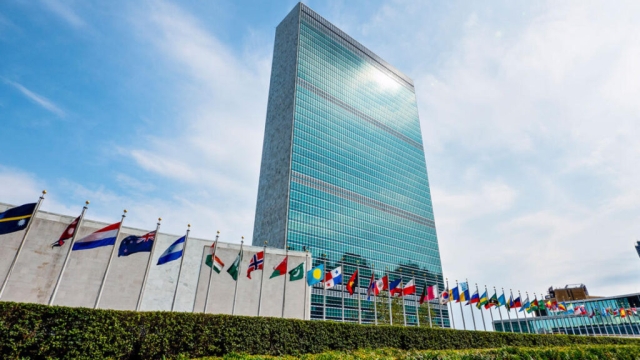The United Nations General Assembly is scheduled for an emergency session on Tuesday to discuss a proposed resolution that calls for an immediate humanitarian cease-fire in Gaza. This resolution arises amidst serious concerns regarding the humanitarian crisis in Gaza and the suffering of Palestinian civilians. Nevertheless, it also acknowledges the importance of safeguarding both Israeli and Palestinian civilians under international law.
While underlining the necessity for all parties to adhere to international law, the resolution notably demands the prompt release of all hostages and stresses the importance of ensuring unimpeded humanitarian access.
A similar proposition was previously brought before the U.N. Security Council but was not passed due to a U.S. veto. The United States, explaining its stance, emphasized its support for humanitarian pauses but raised objections to a cease-fire that would potentially enable Hamas leadership to continue its activities in Gaza, including planning future attacks.
In anticipation of the U.N. meeting, tensions and hostilities persist in Gaza, with Israeli airstrikes targeting rocket launch sites across the region. The Israeli military asserts that these operations are essential for neutralizing threats, as evidenced by their discovery of a significant cache of rockets and other armaments.
Meanwhile, in the Israeli-occupied West Bank, there have been reports of fatalities due to Israeli actions. The Palestinian Red Crescent Society attributes some of these deaths to an Israeli drone strike.
Since the Hamas-initiated attack on Israel on October 7, there have been numerous Palestinian casualties in the West Bank. Concurrently, the Israeli offensive in the Gaza Strip, aimed at dismantling Hamas, has resulted in significant Palestinian losses.
The United Nations General Assembly is reportedly gearing up to vote on an urgent humanitarian ceasefire in the ongoing conflict between #Israel and the #Palestinian terrorist group #Hamas in #Gaza.#UNGA #IsraelHamasConflict https://t.co/jMyplEYeLP
— NewsBytes (@NewsBytesApp) December 12, 2023
The World Health Organization has urgently called for the protection of healthcare and humanitarian assistance in Gaza, citing operational challenges and restrictions faced by aid agencies and medical teams.
Israel has announced measures to facilitate the inspection and delivery of aid into Gaza, including opening a second inspection point. Despite these efforts, the overall volume of aid entering Gaza remains below pre-conflict levels, according to U.N. reports.
Taking bets on Australia's UNGA Gaza ceasefire vote. Predicting Australian abstention in line with UK vote in the SC on grounds no condemnation of Hamas. Canberra's vote would align with US and Israel in failure to call for ceasefire as bombs rain down. https://t.co/XzdTkAQK3A
— Antony (Tony) Walker (@tonywalker1) December 12, 2023
Israeli Defense Minister Yoav Gallant, while reiterating Israel's commitment to its security and the security of its citizens, clarified that Israel does not seek a permanent presence in the Gaza Strip.
The conflict, which began following a cross-border attack by Hamas into southern Israel, has displaced a considerable number of people in Gaza. This has led to overcrowded conditions in shelters, raising concerns about health and sanitation.


